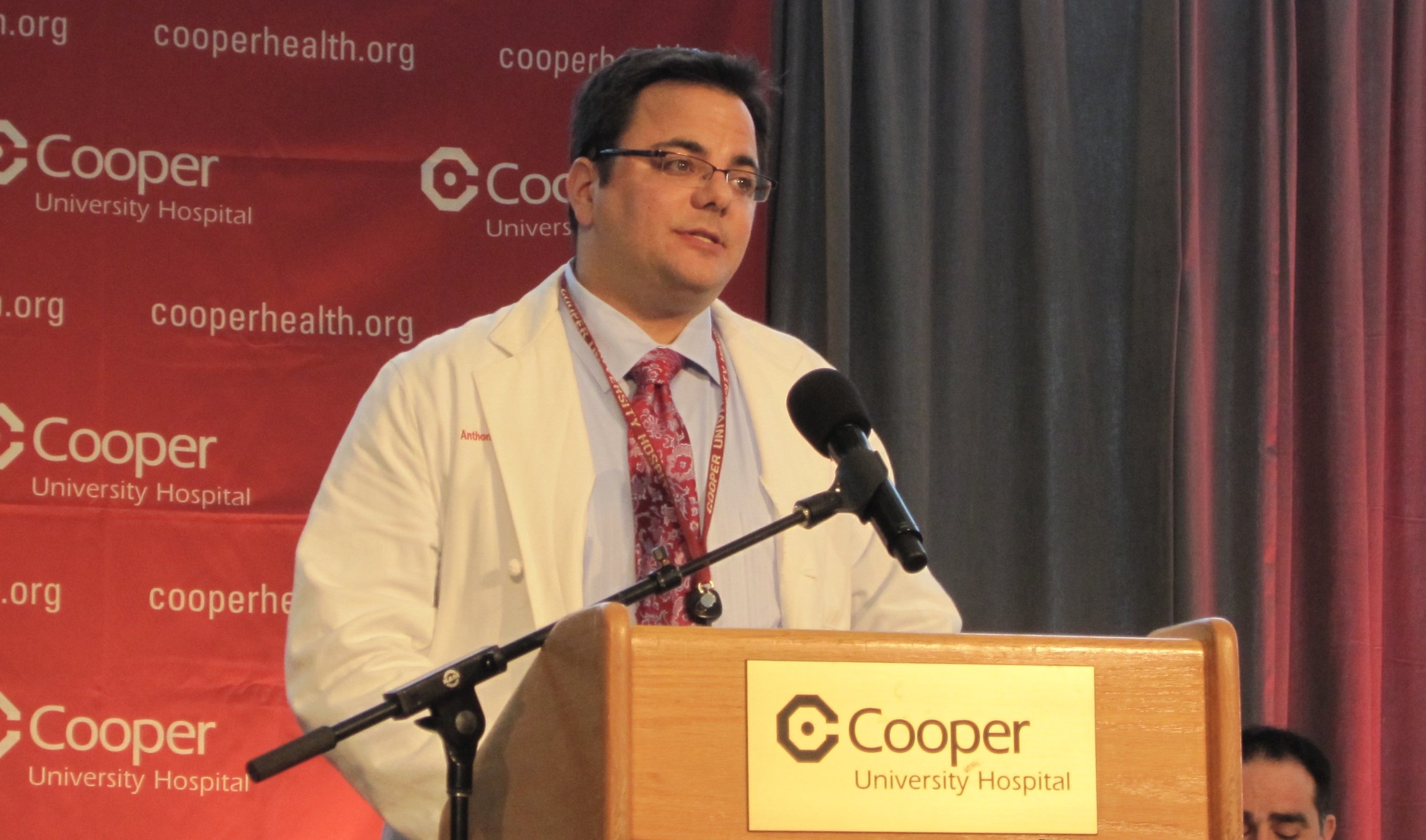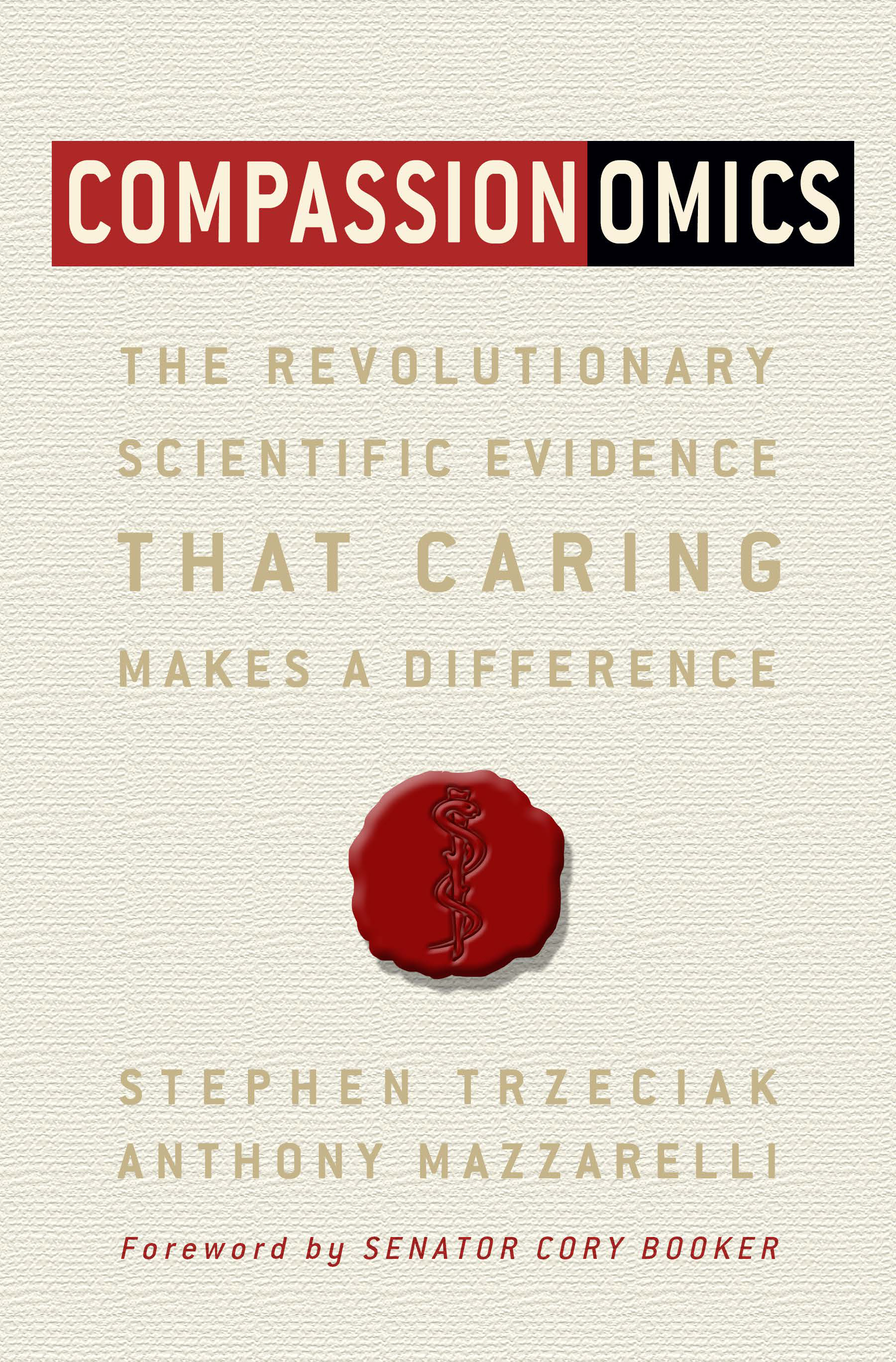Dr. Anthony Mazzarelli on co-writing Compassionomics

Imagine this: You’ve been in the examination room at your doctor's office for nearly 30 minutes, waiting to review an abnormal test result. Your anxiety, already elevated by the news something is amiss, has only been heightened by the detached manner by which you were received, processed, and shuffled into the waiting area. The doctor arrives and the news is grim; your treatment will be painful and the odds do not look favorable for your complete recovery.
However, after explaining the prognosis and treatment, your doctor then does something unexpected. Your doctor reaches out to gently touch your hand and expresses that you are “in this together.” Would you believe that this brief exchange has just increased the chances of not only your recovery time, but your chances of survival as well?
Fascinating new research points towards the conclusion that healthcare is in a “compassion crisis." Burnout is high among caregiving professionals, patients are increasingly reluctant to trust providers, and rising costs of healthcare are among the many concerns facing the healthcare system. With the many issues that are challenging how healthcare operates, the question becomes, “Does compassion really matter?”
For physician scientists Dr. Stephen Trzeciak and Dr. Anthony Mazzarelli the answer is an emphatic “Yes!” In their book Compassionomics: The Revolutionary Scientific Evidence that Caring Makes a Difference (Studer) Trzeciak and Mazzarelli examine the many ways that they see how compassion is the key to successful healthcare.
Both men have written for medical journals before, and are no strangers to the rigors of writing and editing, but this book was a departure. “Writing this book was very different from writing professional papers, work that was published in peer-reviewed journals,” Mazzarelli told Spine. Once both men began to research their topic and sift through the “mountains of data” it became clear that their writing style needed to be balanced. It was important for medical professionals to understand that compassion can drastically influence the success of their practice. Both men were used to writing to a medical audience. But it was also crucial to address everyday people, to help them understand how compassion affects their health as well.
Aside from making the data interesting to a general audience, another challenge was to make the case plain for other physicians. The authors’ rigorous review of thousands of medical journal articles, coupled with stories that are both personal and professional, was a tremendous undertaking. “The art of medicine is something done after the science part” Mazzarelli explained. “If all parts (of medical practice) are grounded in science — does compassion matter?”
“We had a head start, as the moral argument is there — ethically, compassion is the right place to start,” he said. “Science is there to support that there are other reasons, so it made it easier to do.” However, having a substantial amount of science to support their writing process sometimes became a little daunting. To them, the data was clearly pointing towards the need to make changes in the healthcare community, but if there was so much evidence, then why hasn't anything been done? Though both authors felt as though they were “standing on the shoulders of other papers, other studies,” Dr. Mazzarelli began to wonder, “how come others never wrote about this?”
The call for compassion had not made it from the “dessert table” of the scientific community to be considered part of the “entrees, the main course,” he surmised. Mazzarelli and his co-author felt that writing a book, not a paper, would “transition it from being an extra. Like dessert, where it’s ‘nice’ to have. But in reality it changes outcomes and should just be part of the meal.”
As the two men set aside their academic perspectives and contemplated the frame of their narrative, storytelling and language jumped out to them as a possible reason why. “Mushy subjects” like compassion have largely been avoided in academic writing, and initially these two physicians-turned-authors were trying to “science this [the evidence] up to possibility to change behaviour.” However, midway into the transition they were “blown away by how much [stories] make a difference” and as a part of their process they focused more on “how do you frame it in a way to make sure that people read the whole thing.”
Their efforts resulted in a book that weaves together science and stories to great effect. Dr. Mazzarelli still revels in the process that he in his co-author endured to make sure the case for compassion found its way into the mainstream. “This is our first book — there was a story we had to tell,” he stated. “We think there is a crisis and this is about connecting the dots; making it accessible and getting the message out there.”
Which, for two people wading into unfamiliar waters, speaks to the challenge many writers face. Many have stories to tell and information to share — yet taking the leap of faith to put convictions to paper is a daunting task. Dr. Stephen Trzeciak and Dr. Anthony Mazzarelli had the stories of patients, the data of previous studies, and the desire to make a change across the medical field and beyond. All of the struggles they faced were buoyed by a single thought, which any writer could take to heart when thinking about the impact of stories. Recalling the amount of work that had been done before, and the studies and stories that supported this book, Dr. Mazzarelli explained that everything that had come before amounted to a “pebble in a pond, even rocks to make a splash.” However, when it came to compassion, and writing to support a call to action, he said, “we wanted to make waves.”
Find Dr. Anthony Mazzarelli on Twitter @AJMazzarelli.
Tracie Mooneyham works as Program and Grants Manager for the Robins Foundation, a private foundation working to strengthen the community of Richmond, Virginia. She also serves as Content Editor for Initiatives of Change International, working with a network of teams and individuals whose goal is to build trust through honest dialogue.

